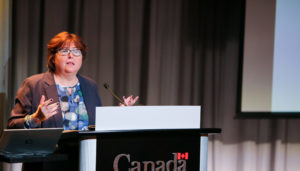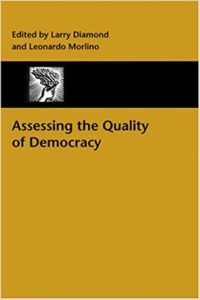
January 2020, Volume 31, Issue 1
The Rise and Fall of Good-Governance Promotion
Anticorruption has become universally accepted as a norm; that may tell us something about why it struggles in practice.

January 2020, Volume 31, Issue 1
Anticorruption has become universally accepted as a norm; that may tell us something about why it struggles in practice.
July 2018, Volume 29, Issue 3
In Romania today, as in Italy twenty years ago, the gradual politicization of anticorruption has come to shape the political scene.

January 2016, Volume 27, Issue 1
Are the “virtuous circles” crucial to good governance always the product of long-term developments under unique historical circumstances, or can they be started or accelerated by wise policies?
October 2015, Volume 26, Issue 4
A review of Political Order and Political Decay: From the Industrial Revolution to the Globalization of Democracy by Francis Fukuyama.
January 2015, Volume 26, Issue 1
Institutional choices matter in the postcommunist world, but geopolitical and civilizational boundaries still set the horizons of political possibility.
January 2014, Volume 25, Issue 1
Improving governance in the EU’s new member states remains a huge challenge for the European project. Why has the EU succeeded in promoting democracy among its postcommunist members but failed in promoting good governance?

January 2013, Volume 24, Issue 1
Political competition by itself does not curb corruption. Societies must also have a combination of values, social capital, civil society, and civic culture in order to impose effective normative constraints on corruption.
January 2010, Volume 21, Issue 1
Read the full essay here. The recent history of Eastern Europe can best be understood as a transition to a new social contract between the postcommunist state that emerged from its communist predecessor and the postcommunist citizen who evolved from the communist subject. It is the relationship between state and society under communism that best…
July 2009, Volume 20, Issue 3
In April 2008, disputed election results in the tiny state of Moldova sparked violent protests and a harsh response from state authorities.
October 2007, Volume 18, Issue 4
The countries of Central and Eastern Europe successfully transitioned to democracy. Do their ongoing political problems exist today because of or in spite of the European Union?
April 2007, Volume 18, Issue 2
A review of Confronting the Weakest Link: Aiding Political Parties in New Democracies by Thomas Carothers.

July 2006, Volume 17, Issue 3
Successfully fighting corruption in developing and postcommunist countries requires far more than instituting best practices from advanced democracies. Corruption first must be properly diagnosed; in some cases it can be effectively treated only by attacking the distribution of power itself.
April 2005, Volume 16, Issue 2
This report is by Alina Mungiu-Pippidi, president of the Romanian Academic Society, who heads the Coalition for a Clean Parliament.
January 2004, Volume 15, Issue 1
By expanding itself eastward, the EU has not so much settled the questions surrounding the “borders” of Europe as it has displaced them, changing their focus to take in new areas and new issues.

"An important milestone in the study of democratic quality, and an excellent resource for both scholarly researchers and graduate courses on comparative democracy and democratization."—Daunis Auerson, Political Studies Review
